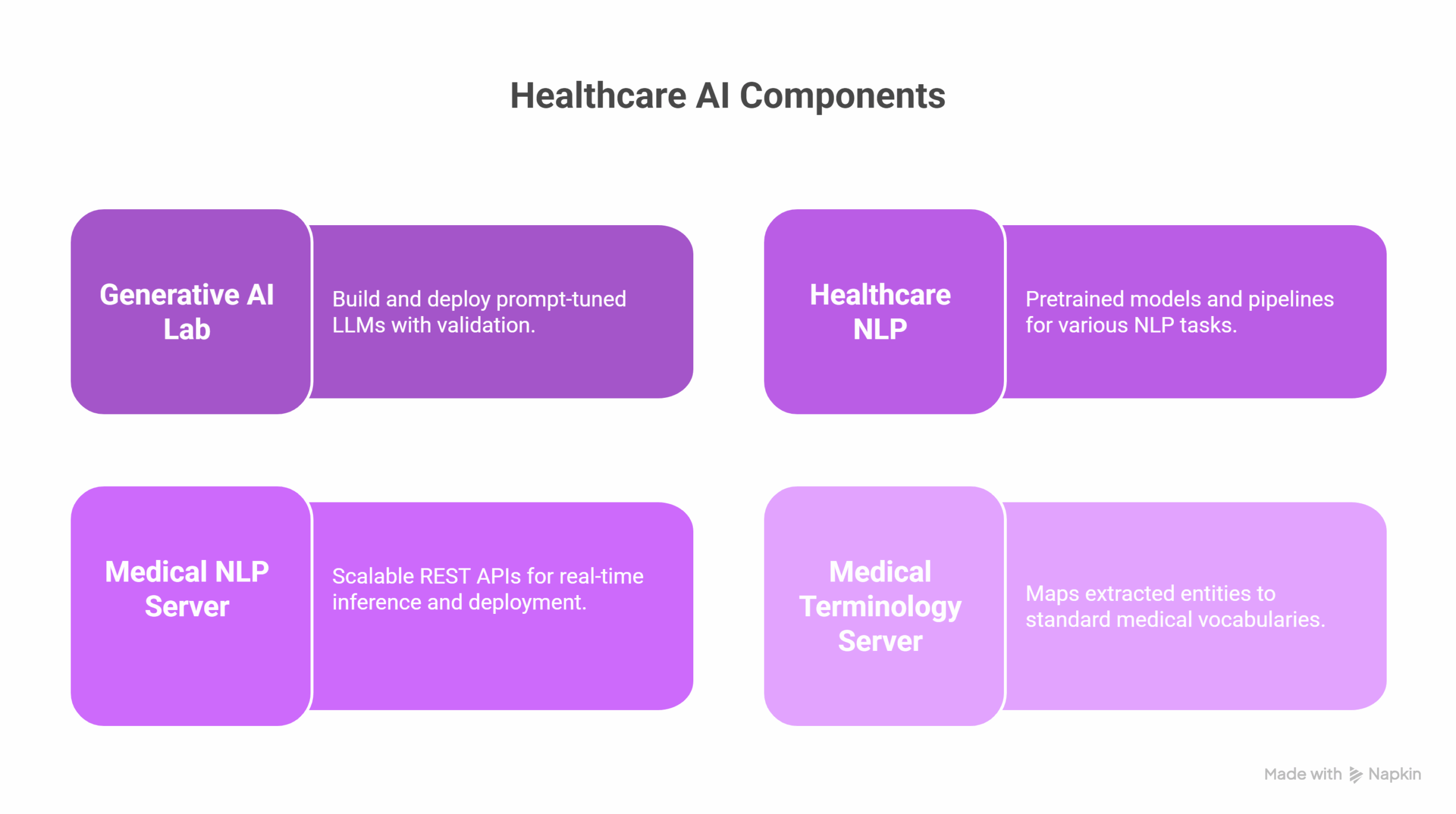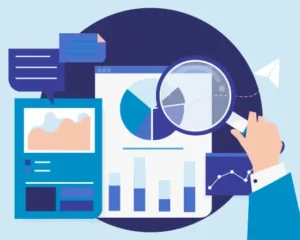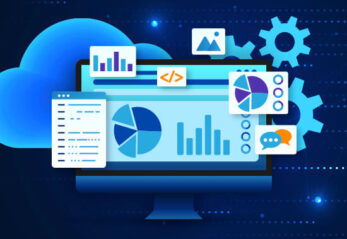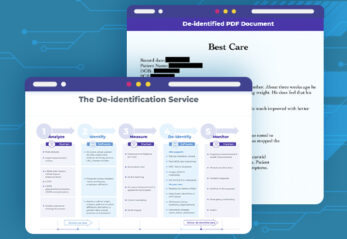What is clinical data extraction, and why does it matter?
Clinical data extraction involves retrieving structured insights from unstructured sources like clinical notes, radiology reports, or discharge summaries. It’s essential for clinical decision support, quality measurement, coding, billing, and research.
Manual extraction is too costly and computerized rule-based systems are difficult to maintain and do not cover well edge cases. Generative AI, especially domain-specific LLMs, can understand natural language, detect context, and extract complex medical concepts at scale.
How does generative AI work in clinical settings?
Unlike general-purpose models, John Snow Labs’ language models are trained on real clinical narratives. This means they can:
- Detect medical entities like diagnoses, lab tests, procedures
- Recognize negations (“no sign of pneumonia”) and uncertainty (“possibly viral origin”)
- Understand relations and context (e.g., “Metformin 500mg for diabetes”)
- Summarize patient history, timelines, and even radiology findings
Which John Snow Labs solutions enable this?
- Generative AI Lab: Enables healthcare teams to build, test, and deploy prompt-tuned LLMs for domain-specific use cases. Supports human-in-the-loop validation.
- Healthcare NLP: Includes over 1,300 pretrained models and 1300+ ready-to-use pipelines covering NER, assertion detection, de-identification, entity linking, summarization, and more.
- Medical NLP Server: Provides scalable REST APIs for real-time inference and deployment, ensuring enterprise readiness.
- Medical Terminology Server: Maps extracted entities to standard vocabularies like SNOMED CT, LOINC, and ICD-10.
What are real-world results?
Healthcare providers using John Snow Labs solutions report:
- 80% faster data extraction for quality and regulatory reporting
- Greater than 95% F1 accuracy in key information extraction tasks
- Improved auditability with versioned and explainable outputs
How does this support compliance and transparency?
Each extraction task is version-controlled, auditable, and explainable. Clinicians can see why a diagnosis was flagged or which sentence a code was derived from. This is especially valuable for:
- Medicare Risk Adjustment
- Healthcare Effectiveness Data and Information Set (HEDIS) and Merit-Based Incentive Payment System (MIPS) reporting
- Internal audits and payer negotiations
What about EHR integration?
The Medical NLP Server offers APIs compatible with HL7, FHIR, and custom formats. It supports Docker, Kubernetes, and major cloud providers.
What’s the future of clinical data extraction?
The next frontier is fully interactive systems where clinicians prompt an LLM with questions like:
- “What were this patient’s top risk drivers over the past year?”
- “Summarize all abnormal imaging results since 2022.”
These are no longer hypothetical. They’re being built now, thanks to the tools John Snow Labs provides.
FAQs
How are John Snow Labs’ models trained?
They are trained on real clinical texts and fine-tuned for over 30 downstream tasks using tens of thousands of annotations validated by domain experts.
Can it extract longitudinal data like disease progression?
Yes. The models include temporal relation extraction to map disease trajectories and treatment effects over time.
What regulations do these tools comply with?
All tools are HIPAA and GDPR compliant, with full on-premise and private cloud deployment options.
How is Human-in-the-loop (HITL) supported?
Generative AI Lab includes an interface for clinicians to validate, correct, and monitor AI outputs, closing the loop between automation and human judgment.
Do I need a large IT team to implement this?
No. The stack is deployable via Docker containers and comes with prebuilt APIs. Organizations with minimal technical teams have successfully implemented it.































